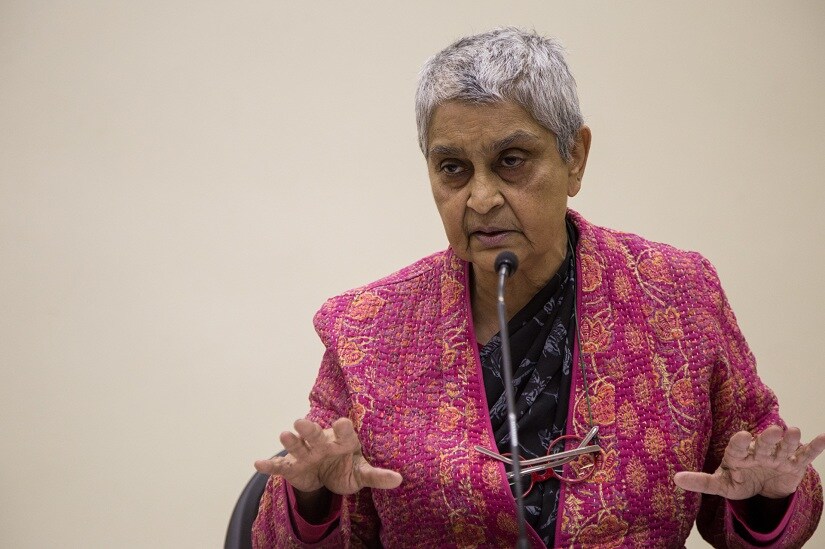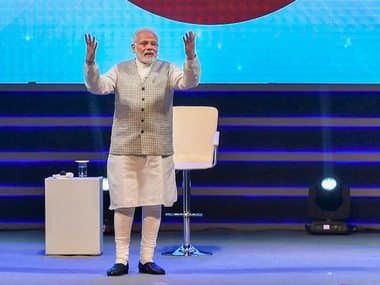Few matters as trivial have a history as chequered as the project of translation. It is said that in India there have been two, not one, epochal projects of translation, both legitimised by rulers – the first by the Mughal rulers who commissioned translations of religious scripture like the Ramayana, Mahabharata, even the Panchatantra into Persian, and the second by colonial rulers who read the ‘classical’ too seriously and endeavoured to translate the Vedic corpus and the shastric literature into English for the establishment of Britannic rule. It is therefore too well-known, particularly to colonial subjects, that translation is a political act. To have Gayatri Chakravorty Spivak, one of the greatest literary theorists in the world, reflect on the art of translation is a delightful privilege, and this week, Delhi had it.
The premise of Spivak’s measured monologue was that translations are both necessary and impossible – while this may appear contradictory, to Spivak this is a conceivable fact of literature. The other premise, implicit in the title ('Necessary and Impossible? Culture as Translation'), was that translation and culture are not distinct entities but one and the same, therefore the injunction of culture as translation. While translation may be a necessary project, why is it impossible, especially as more and more culturally different books are written, and duly, even rapidly translated? If translation merely mediates between two cultures – a function embedded in its Latin root 'translatio' – how is it the culture? Spivak illustrated the challenge of these questions through an example from Antonio Gramsci, the celebrated Italian Marxist who spent the final years of his life imprisoned by Mussolini’s regime, bent over his notebooks, or what would become the canonical Prison Notebooks, through excruciating and eventually terminal spinal tuberculosis. Gramsci remains fundamental to contemporary Marxist theory and for India, to the Subaltern Studies project. The project, pioneered by Ranajit Guha, came from a collective comprising Partha Chatterjee, Gautam Bhadra, and Dipesh Chakrabarty, among others and represented a peculiar Gramscian inroad into Indian history.
It argued that earlier readings of the national movement – the imperialist, nationalist, Marxist, and the Cambridge schools – have been elitist and there was a grave historical need, one that Christopher Hill and Eric Hobsbawm had fulfilled for Britain, to read histories from below. Central to the project was Gramsci’s idea of the subaltern, literally the marginalised, which the Subaltern Studies project interpreted as a class concept. In her illustrious lecture, Spivak argued that this premise of the project was based on a misreading of Gramsci’s concept of subalterni, which was a political and economic expression to identify those at the margins and beyond the logic of class politics. In further polemic, she suggested that the Dalit movement should appropriate this concept, for subalterni is a better instrument to identify caste. The project’s misreading of the word was based on the misreading of the English critical edition of Gramsci’s text which had, knowingly or otherwise, subordinated actual meaning to contemporary understanding and convenience. This error of reading is at the heart of translation, making it necessary and impossible.
Why is translation necessary? The answer to this is easier than most questions on translation, or so Spivak persuasively narrated. Even as globalisation brings us closer than we have ever been, it has had to acknowledge its helpless dependence on language, a communicative thread impossible to dissolve. Translation, then, is the grammar of globalisation, without which it would be but a failed project. English has vastly extended its reach, but it remains a reach that is not all-pervasive, and more worryingly, not permanent. Translation makes the cross-cultural contact so desperately sought by the spirit of globalisation possible, opening tongues, minds, cultures, and worlds. While translation has historically been a political enterprise meant to make cultures meaningful to rulers or for rulers to establish the cultural essentials of their precarious rule, globalisation has made it more apolitical and taken it closer to its etymological meaning of taking across – translation only carries over as capital and data globalise the world. The rest, as Spivak writes in an iconic phrase in An Aesthetic Education in the Era of Globalization (2012), is merely damage control borne majorly by countries in the Third World, however problematic the designation.
Yet, why is translation impossible? It is instructive here to draw on Spivak’s critique of how Gramsci has been translated, for the practice of rendering from English is the object of her trenchant critique. Insights whenever drawn from unthinking translations to the English or translations to the ‘native’ language from English will always be flawed because they rest on flawed ground – the present will always seek to impose on the past, robbing the language of its ‘phonetic and cultural substance.’ Is this substance recoverable, or are native tongues in the throes of globalised translation irretrievably lost?
To Spivak, this is no occasion to lose hope. It is here that she introduces her answer – that culture is translation. Translation, as we know it, has reached its limits or the end of its limits. The only sincere way to translate, or to read a culturally different book, is to go beyond English and with it, the very sense of one’s time. Spivak spoke, to draw on only one instance, of her experience of learning German to read Karl Marx, Italian to read Antonio Gramsci, and Mandarin to read Mao Tse Tung. This must be done not with the intention of translating a text to contemporary use, although that may be one’s eventual purpose, but of accessing, as closely as possible, the apparatus of the text, the world of its author, the complexities of its time. When speaking of Gramsci’s Notebooks, Spivak spoke of the terror of Mussolini and the sheer perseverance of Gramsci’s struggle, fighting both a disease that would make him bleed routinely and all over his cell and a regime that wanted to stop a mind, his mind, from thinking. Translation is impossible, but it is not a close-ended death, for translation can be made possible by becoming what is translated. In this becoming is the hope of translation, and as culture wars intensify, of cultural diversity and the world.
Published Date: Mar 01, 2018 14:56 PM | Updated Date: Mar 01, 2018 14:56 PM



